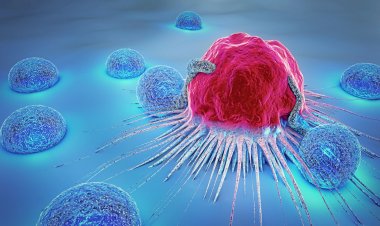What Every Woman Should Know Before Menopause
During this transition, the body undergoes significant hormonal changes, primarily a decrease in estrogen and progesterone production.

As I approached my 40s, I began noticing subtle changes in my body. My periods became irregular, and I started experiencing the occasional hot flash. I had a hunch that these were the early signs of perimenopause, and I knew it was time to prepare for the next chapter of my life. As an herbal therapist and founder of Finest Herbal Shop LLC and Holistic Chase, I’ve always believed in the power of nature to support our health. So, when I found myself on the cusp of menopause, I naturally turned to herbal remedies—specifically, herbal teas—to help me through this transition.
The Early Signs: My Personal Experience
Menopause is something we all go through as women, but it’s a journey that’s unique to each of us. For me, the first signs were mild but unmistakable. The hot flashes, though infrequent, were enough to make me realize that my body was starting to change. Sleep, which had always come easily to me, became elusive on certain nights. I also noticed mood swings—moments of irritability that seemed to come out of nowhere.
As these symptoms began to surface, I felt a mix of emotions. There was a sense of inevitability, yes, but also a bit of anxiety. I knew that menopause was a natural part of life, but I wasn’t sure how my body would handle it. That’s when I decided to lean into what I know best: herbal therapy.
The Effectiveness Of Herbal Tea In Alleviating Menopausal Symptoms
Herbal teas have been a part of my daily routine for years, but as I entered perimenopause, they took on a new significance. I started with **chamomile tea** to help with sleep. I’ve always loved the soothing effect of chamomile, but during this time, it became indispensable. After a few weeks of consistent use, I noticed that I was falling asleep more easily and staying asleep longer. The calming properties of chamomile also helped me manage the irritability that sometimes crept in.
As the hot flashes became more regular, I introduced **red clover tea** into my routine. Red clover is rich in phytoestrogens, plant compounds that can mimic estrogen in the body. This tea was a game-changer for me. The hot flashes didn’t disappear entirely, but they became less intense and less frequent, which was a huge relief.
Another tea that found its way into my daily regimen was **black cohosh tea**. This herb is renowned for its ability to ease hot flashes and night sweats, and it did not disappoint. I also appreciated its anti-inflammatory properties, which helped alleviate the joint pain that occasionally flared up.
Why Herbal Tea For Menopause?
I’ve always believed that nature has provided us with everything we need to stay healthy and vibrant, and my experience with menopause only reinforced this belief. Herbal teas are gentle on the body, yet they pack a powerful punch when it comes to managing menopausal symptoms. They’re also a comforting ritual—a moment to pause, reflect, and nurture oneself amidst the hustle and bustle of daily life.
For those of us going through menopause, it’s easy to feel overwhelmed by the changes happening in our bodies. But I’ve found that embracing these changes with the help of herbal teas can make the journey smoother and more manageable. It’s not just about alleviating symptoms; it’s about supporting your body in a holistic way, giving it the tools it needs to transition gracefully into this new phase.
The Science Behind It: A Natural Approach
The beauty of herbal teas lies in their simplicity and their natural alignment with our bodies. For example, the phytoestrogens in red clover can help balance hormone levels naturally, providing relief from hot flashes and supporting bone health. Chamomile’s calming effects are due to its ability to bind to receptors in the brain, promoting relaxation and better sleep. These aren’t just old wives’ tales—there’s real science behind the benefits of these herbs, and countless women, myself included, can attest to their effectiveness.
Of course, it’s important to remember that everyone’s body is different. What works for one person may not work for another, and it’s always a good idea to consult with a healthcare provider or herbal therapist to find the best approach for you. But in my experience, herbal teas offer a safe, natural, and incredibly effective way to manage the symptoms of menopause.
Moving Forward: Embracing the Journey
As I continue on my journey through menopause, I’m more convinced than ever that embracing the changes with the help of herbal teas is one of the best decisions I’ve made. There’s something empowering about taking control of your health and wellness, about choosing natural remedies that support your body’s innate ability to heal and adapt.
If you’re approaching menopause or already in the thick of it, I encourage you to explore the world of herbal teas. They’re more than just a drink—they’re a way to nurture yourself, to honor your body’s wisdom, and to make this transition with grace and resilience.
Menopause is a new chapter, not the end of the book. With the right tools and mindset, it can be a time of renewal and growth. And in my experience, a steaming cup of herbal tea can make all the difference in how you write this chapter of your life.












